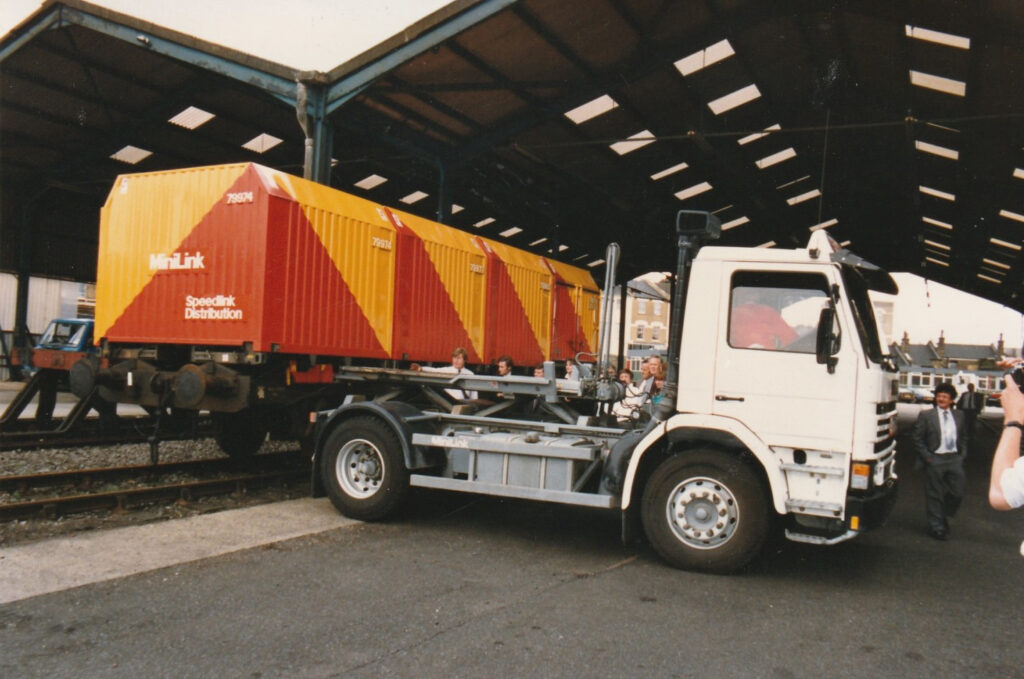Project: Freight, Servicing and Deliveries Consolidation Mapping
Client: Eastern City Business Improvement District
When: 2024
Eastern City Business Improvement District’s give a voice to business communities – championing local priorities and ensuring the right people are at the decision table. The EC BID is one of five BIDs covering the City of London and includes the greatest concentration of commercial buildings.
The EC BID’s programme focuses on:
- A Sustainable District
- An Evolving District
- Strong Community
- Promoting the Eastern City
A key task for the EC BID is to improve the public realm, releasing roads space for pedestrians and cyclists.
In order to deliver on their objectives for creating a sustainable district, which is clean, safe and efficient, EC BID wanted to explore the potential to pilot an inter-building consolidation scheme. This would build on the success of existing and proposed consolidation centres which are required for all new large buildings. The project also considered ways to maximise use of both consolidation and collaboration to reduce delivery vehicle numbers.
To help guide pilot implementation, there is a need for a thorough understanding of what is currently in place (existing consolidation initiatives); future freight, servicing and deliveries (FSD) demand in the EC BID area; impediments to implementation of consolidation and ways to overcome those; recommendations on the structure and format of the pilot; and any other factors that need to be considered.
The Polaris Approach
Our senior team undertook assessments and analysis to understand:
- the feasibility of introducing an area-based FSD consolidation pilot within the EC BID area
- existing and proposed consolidation schemes
- future servicing demand, in terms of the property development pipeline
- the challenges such a trial could face
- a broad framework for the pilot
- best practice examples of schemes in place elsewhere
A key feature of our approach was to undertake a comprehensive programme of site visits and stakeholder interviews with building owners, property managers, occupiers and logistics service providers. able to
The Result
Data showed that office space in the area would grow by 44% by 2030. This could result in a siginficant increase in deliveries. Even if consolidation is implemented for all new buildings, deliveries would still grow. Key to reducing the volume of deliveries is:
- Rolling out consolidation to major exising buildings, in addition to new buildings
- Developing area wide delivery collaboration
- Moving more deliveries to off peak periods and night time.
We found that users of the small number of existing consolidation centres were extremely happy with the service. Non users and building managers were interested in consolidation, but deterred by the perceived cost. There is significant scope to increase volumes through existing remote consolidation services, to help drive down per unit costs.
Polaris is working with the EC BID to develop a programme to work closely with businesses, to identify and quantify the benefits of consolidation and to further trial consolidation for existing buildings. The BID is also looking at ways to encourge collaboration and to shift more deliveries to night time.
If implemented, the EC BID will benefit from a world class range of delivery management services and will be able to continue growing, while reducing total delivery and servicing movements, thereby providing a great environment for residents, businesses and workers.
Project: Freight Action Plan
Client: England’s Economic Heartland
When: 2024
England’s Economic Heartland (EEH) is renowned for its world class strengths in digital technologies, life sciences, advanced manufacturing and green industries/ energy. The region is of strategic importance to the whole of the UK, given that major freight corridors pass through the region, including road and rail routes. EEH is part of the “golden triangle” for freight and logistics and is home to head offices for key logistics companies such as DHL, XPO and innovative support companies such as ABB automation at Milton Keynes, Head Offices for Mercedes, Scania trucks and Jungheinrich forklifts.
Polaris Consultancy Group was appointed by EEH to assist with a revised Freight Action Plan to support the Regional Transport Strategy’s aim of supporting sustainable economic growth, with an ambition to achieve net zero from transport by 2040.
The Polaris Approach
Our senior team embarked on a robust process of review, engagement and revision of the existing work EEH had undertaken. We built on their work, updating and bringing to life the actions needed to ensure freight and logistics continues to grow sustainably in the region.
We engaged with key trade organisations, to ensure industry views were adequately considered in the Strategy refresh.The strategic ambition of EEH and their Local Authorities requires interventions that are fit for purpose and, importantly, have the support of stakeholders who will be key to the success of EEH actions. Therefore, engaging with key stakeholders became the key route to generating an output that can be relied upon to deliver.
The Result
The Freight Action Plan identifies a large set of actions that will support Local Authorities to best plan for the safe and efficient movement of freight and logistics, support the industry to continue to meet business and consumer demand and enable EEH to understand their role in raising the status of freight across the region, while embedding a multi-modal approach to support a cleaner and more efficient freight system. This includes meeting ambitious decarbonisation targets, harnessing innovative solutions to support efficient supply chains from international gateways and national/regional distribution centres, through to last mile deliveries that utilise the right technologies, routes and modes.


